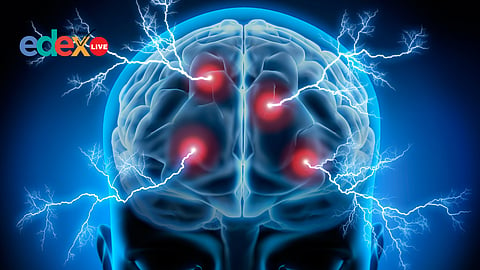Kerala University study finds link between protein build-up in brain, schizophrenia
Is there a link between elevated levels of a protein named S100B in the brain’s olfactory lobe and schizophrenia? Yes, according to researchers at the University of Kerala, popularly known by its acronym KU, whose latest findings provide crucial insights into how schizophrenia affects brain function, particularly in relation to memory and cognition.
The study, by Viji Vijayan and Nimmi Varghese, has been published in the Journal of Biomedical and Molecular Toxicology. The researchers used a chronic ketamine mouse model to study whether S100B protein expression in astrocytes is altered during schizophrenia -- a serious mental condition that can lead to hallucinations, delusions and disordered thinking and behaviour.
Astrocytes are star-shaped cells in the central nervous system that play a crucial role in supporting and modulating sensory processing, integrating neuronal signals, and maintaining the neural environment.
The objective of the study was to specifically study whether ketamine-mediated schizophrenia induction alters the S100B population of astrocytes. Notably, the study revealed that the olfactory lobe, the brain’s primary centre for processing smell, showed significantly increased expression of S100B in mice, induced with schizophrenia-like symptoms using ketamine.
According to the researchers, the calcium-binding protein S100B was traced directly to the olfactory lobe in mice. This protein is frequently reported at elevated levels in the blood and cerebrospinal fluid of schizophrenia patients. “The study revealed that the S100B protein is overly expressed in astrocytes, a type of glial cells in the olfactory lobe,” Viji told TNIE.
According to the researchers, the results could open up new possibilities for developing diagnostic markers and novel therapeutic targets for schizophrenia. This study also uncovers the possibility of modulating S100B astrocytes as a therapeutic option for schizophrenia.
“At present, there are no non-invasive mechanisms to identify S100B in brain cells. However, if such a breakthrough happens owing to fast paced technological advancements, it could be a game changer in diagnosis of schizophrenia at an early stage,” Viji explained. The research was supported by a plan grant from the Kerala government, which funded the establishment of KU’s neurobiology laboratory.


